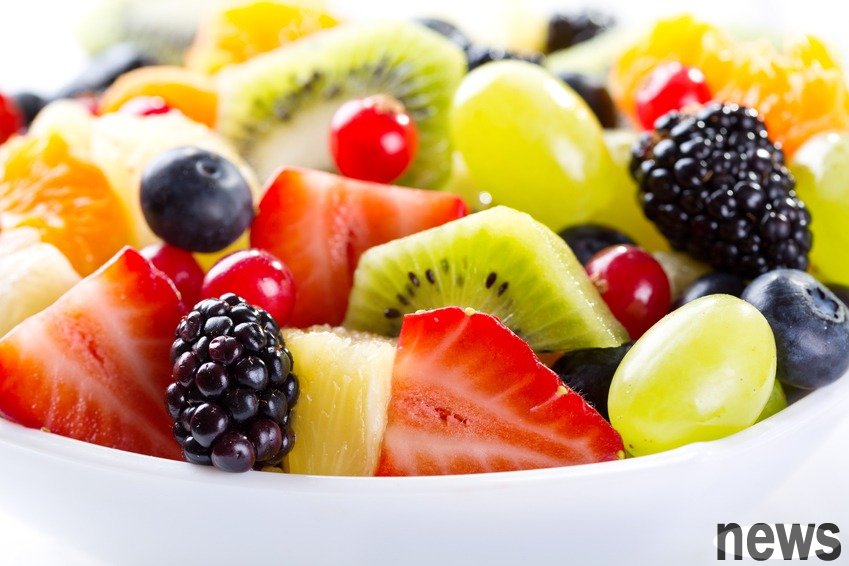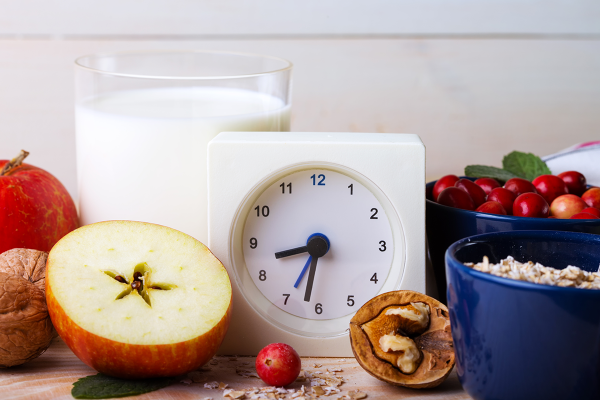How much fruit is eaten is too much? Excessive consumption may cause 3 major risks: 5 tips to help you eat healthily

Are you often reminded to eat more fruits? This is indeed the correct eating direction. According to nutrition experts, complete fruits are rich in fiber, vitamins and antioxidants, and are an important source of healthy diet.
But do you know? No matter how good the fruit is, it doesn’t mean you can eat it in unlimited amounts. Excessive fruit extraction may cause stomach inappropriateness, blood sugar fluctuations, and even cause health risks to certain ethnic groups.
?According to the "Daily Eating Guide" recommendation of the Ministry of Health of the People's Health Department, adults should generally take 2 servings of fruit every day, each serving is about the same size as a boxer, such as a medium-sized apple or banana.
However, the survey shows that more than 80% of people have insufficient fruit consumption. Rather than drinking juice or eating dried fruit, it is better to choose fresh and complete fruits, which can better absorb dietary fiber and vitamins.
Although most people don't eat enough, some people may overeat, especially when using fruit as a main focus or taking it out of date for understanding the mouth. Even if the fruit is natural, it contains sugar and heat, it still needs to be included in the balance of the overall diet.
What are the risks of eating too much fruit?Although fruits are natural and healthy foods, excessive consumption may cause the following inappropriate or health problems:
1. Inappropriate stomachDietary standards in fruits help digestion and blood sugar stability, but eating too much may lead to:
. Belly and breathing. Abdomen or constipation
. Abdominal pain, gastroesophageal reflux
2. High abdominal sensitivity (FODMAP) fruits lead to kidney diseaseCertain fruits such as apple, watermelon, and mango contain FODMAPs (fermented short-link carbohydrates), which are particularly prone to inappropriate causes in patients with dysentery or inflammatory kidney disease.
Relatively friendly fruits include cantaloupe, orange, grape, strawberry, and pear.
3. Blood sugar fluctuationFruits contain natural fructose and carbohydrates. For people with diabetes, taking too much fruit may lead to excessive blood sugar. Each serving of fruit (such as a medium-sized apple) contains about 15 grams of carbohydrates, so special attention should be paid to serving control and pairing with other foods.
Who may need to eat more fruit?Some ethnic groups may need to fetch more fruit than ordinary people, for example:
. Sportsmen and high activity users: need to quickly replenish energy and carbohydrates, such as bananas, seeds, etc.. Contuitous: You can increase the storage of high-quality fruits such as strange fruits, pears, and bali.
. Post-mortgage recovery: It is recommended to choose fruits with high nutritional density and sufficient moisture to help recover.
. Plant-based dieters: Fruits are often one of the sources of energy and nutrients without taking animal protein.
5 tips for growing healthy fruits 1. Mainly with whole fruitsJuice and dried fruits will lose a lot of fiber and nutrients during the production process, and may even add sugar. Intact fruits can retain natural fibers, vitamins and antioxidants, which can help stabilize blood sugar and keep your kidneys healthy.
2. Combined with protein or healthy fatsFruits contain natural sugars and carbohydrates, and can be absorbed quickly by eating them alone. Nutritionists suggest that fruits can be paired with high-quality protein, such as qualities, fruits, cheese or peanut sauce, which not only delays the rise in blood sugar, but also makes the refreshed feel more plentiful and nutritious.
3. Master the appropriate portion and sugarAlthough fruits are from natural sugar sources, excessive amounts may still lead to excessive heat or blood sugar fluctuations. It is generally recommended that each serving of fruit be about the size of an adult boxer. Remember the appropriate principle when taking it, so that you can eat healthily and without any burden.
4. Select the local fruits in the seasonfruits will gradually lose nutrients during the storage and transportation process after harvest. Choosing fruits produced in the season and locally will not only be fresh, but also have a higher nutritional value.
5. Don't let fruit change the main mealFruit is a good snack or supporting role, but not a substitute for the main meal. Don’t eat three or four fruits in one bite to replace lunch, which will cause nutritional imbalance. Including fruits into a balanced diet and combining them with vegetables, protein and all grains is the real healthy diet.




